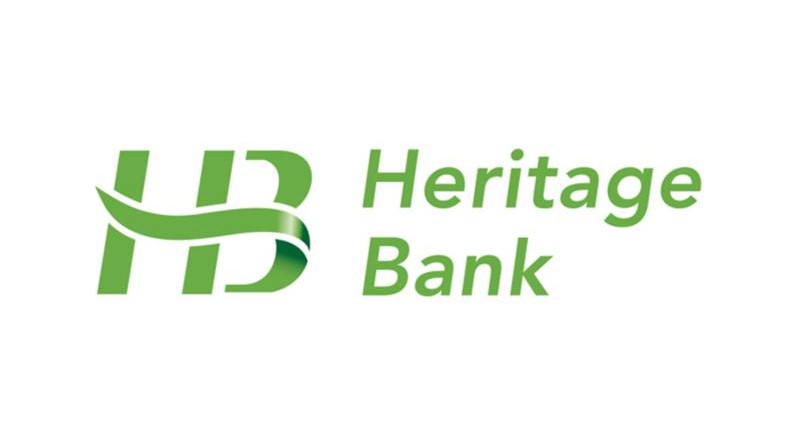Heritage Bank’s operating banking license revoked
The Central Bank of Nigeria today revoked the operating license of Heritage Bank Plc, one of the commercial banks operating in the country.
In a statement issued by CBN acting Director, Corporate Communications, Mrs. Hakama Sidi Ali, said the revocation was in accordance with the CBN’ mandate to promote a sound financial system in Nigeria and in exercise of its powers under Section 12 (1l of the Banks and Other Financial Act (BOFIA) 2020.
According to her, the CBN had made various efforts in the past to assist the bank regain sound financial footing but, “Regrettably, the bank has continued to suffer and has no reasonable prospects of recovery, thereby making the revocation of the license the next necessary step.”
The news of the revocation of the operating license of Heritage Bank did not come as a surprise to many. In the past six years there has been various rumours regarding the health of the bank, denials and counter denials by the management of the bank and interventions of various sorts by the CBN. The Central Bank also joined in the denials and counter denials of the existense of problems with any bank in Nigeria.
According to a post on X by Techcabal, “When Nigeria’s Central Bank revoked Heritage Bank’s licence today, very few people were surprised. The struggling lender has had notoriously bad non-performing loans (NPLs) since 2018 and by March 2024, its NPLs had ballooned to ₦590 billion”
The Nigeria Deposit Insurance Corporation (NDIC) has been appointed as the liquidator of Heritage Bank in accordance with Section 12 (2) of BOFIA 2020 and the Liquidator has taken over all of the bank’s assets with a view to securing them and paying off depositors and recovering from debtors.
A legacy of banking failures
The latest history of Heritage Bank started on March 4, 2012, when IEI Investments Ltd successfully obtained the license of Societe Generale Bank of Nigeria from the Central Bank of Nigeria (CBN). This acquisition was made possible after fulfilling all the necessary requirements set by Nigeria’s apex bank.
Subsequently, on March 14, 2013, Heritage Bank Plc emerged as a regional bank in Nigeria, commencing its operations. By acquiring the license and framework of the former Societe Generale Bank of Nigeria, which had been shut down (failed) by the CBN in January 2006 due to its failure to meet the new capital requirements of N25 billion or $155 million for a national bank, Heritage Bank demonstrated its commitment to the financial landscape. Notably, Heritage Bank ensured the return of 100% of the funds held by existing SGBN account holders, which had been frozen during the closure of SGBN.
In October 2014, the Assets Management Corporation of Nigeria (AMCON) declared that Heritage Bank had been selected as the successful bidder for the acquisition of the failed Enterprise Bank. Heritage Bank had satisfactorily fulfilled all the requirements outlined by the CBN and AMCON in order to acquire 100% ownership of Enterprise Bank.
Enterprise Bank was founded in August 2011 after acquiring assets and specific liabilities from the failed Spring Bank, which had its commercial banking license revoked. Enterprise Bank successfully obtained a commercial banking license on the 5th of August, 2011.
Spring Bank was established in December 2005 through the consolidation of six weak and failing Nigerian financial institutions, which are as follows: ACB International Bank Plc, Citizens International Bank Plc, Fountain Trust Bank Plc.Guardian Express Bank Plc, Omega Bank Plc and Trans International Bank Plc.
So in approximately 11 years, Heritage Bank, the acquirer and successor of the failed Societe Generale Bank of Nigeria and Enterprise Bank, met the same fate and failed as a banking instituion in Nigeria, a legacy of banking failures.




